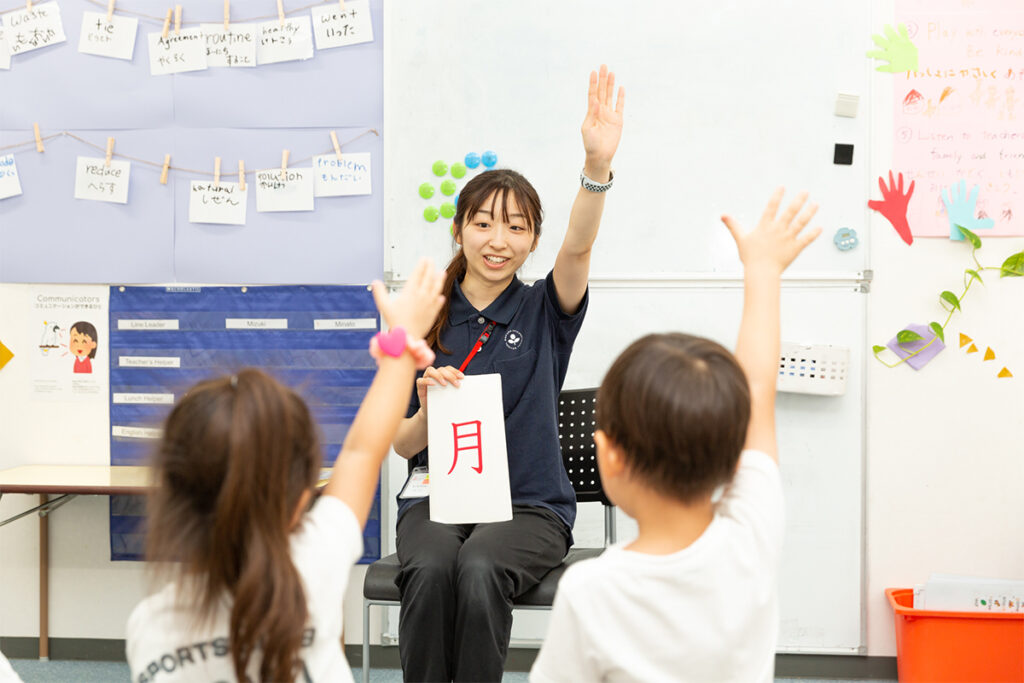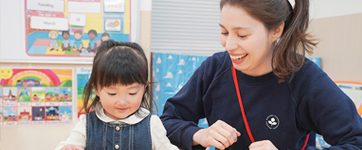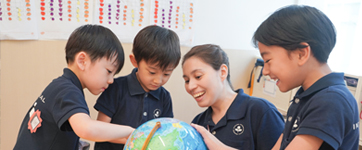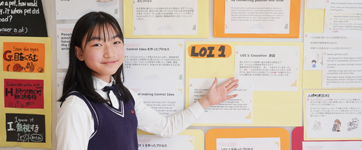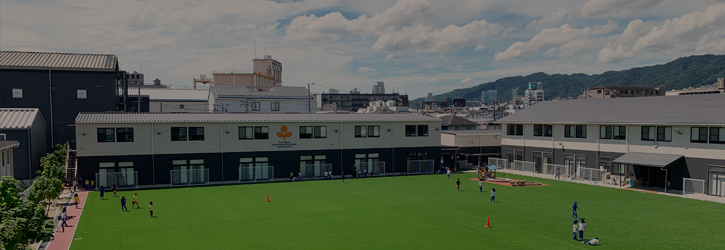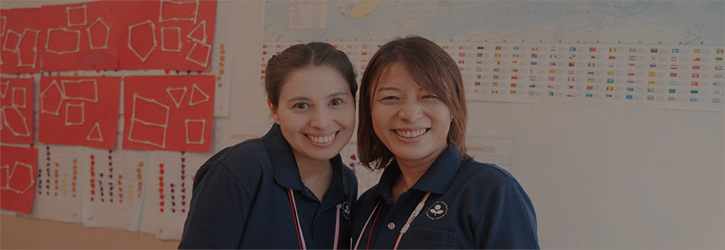Learning and Development
The Kindergarten Curriculum is divided into six Areas of Learning and Development:
- Communication, Language and Literacy
- Expressive Arts and Design
- Personal, Social and Emotional Development
- Understanding the World
- Mathematics
- Physical Development
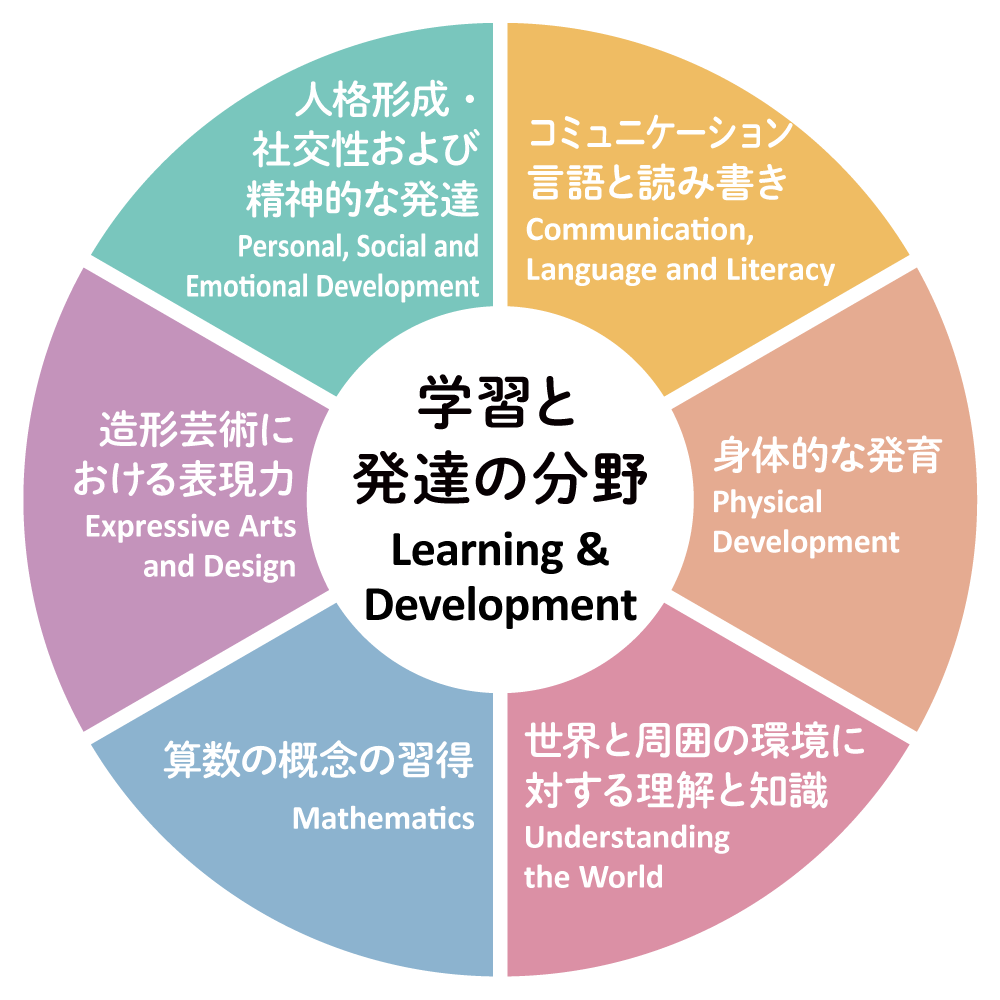
カリキュラム
Fostering Student Well-being
The physical and emotional well-being of all students is pivotal to the Kindergarten Program. Emotionally and physically healthy children are happier, more resilient, and more likely to form positive relationships.
Well-being is essential for lifelong success and is closely linked to learning. We are committed to providing a caring and supportive environment to ensure the emotional and physical well-being of every student.
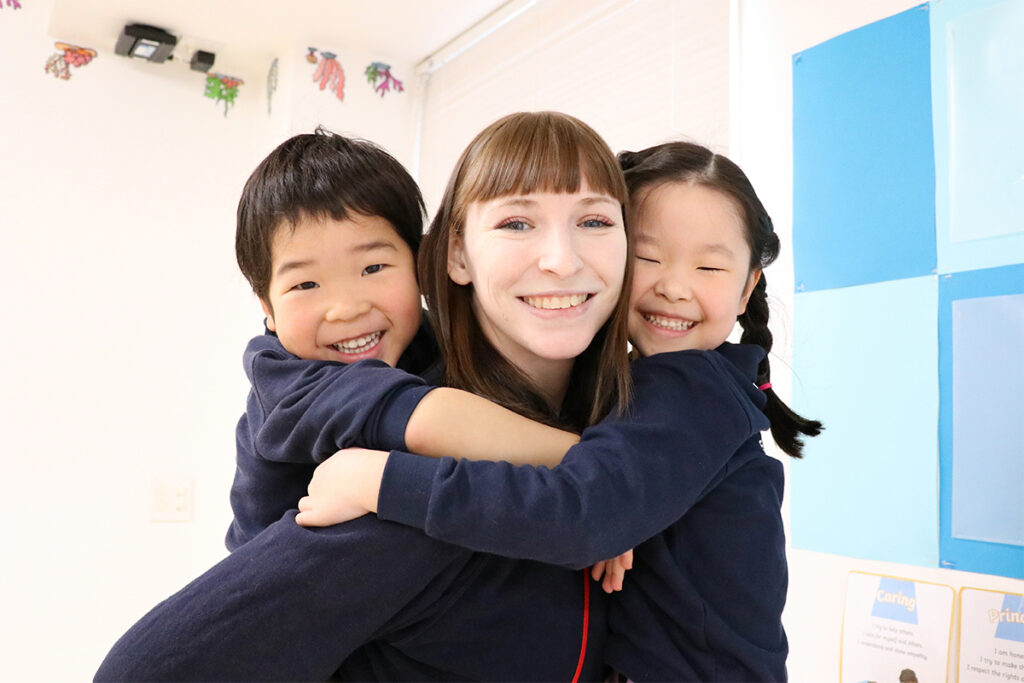
Learning Through Play
We believe that active, experiential, structured play is critical for learning in early childhood. Through play, children make meaning of the world around them, learn how to solve problems and think critically.
Play also supports the development of children’s social and self-management skills as well as their fine and gross motor skills.
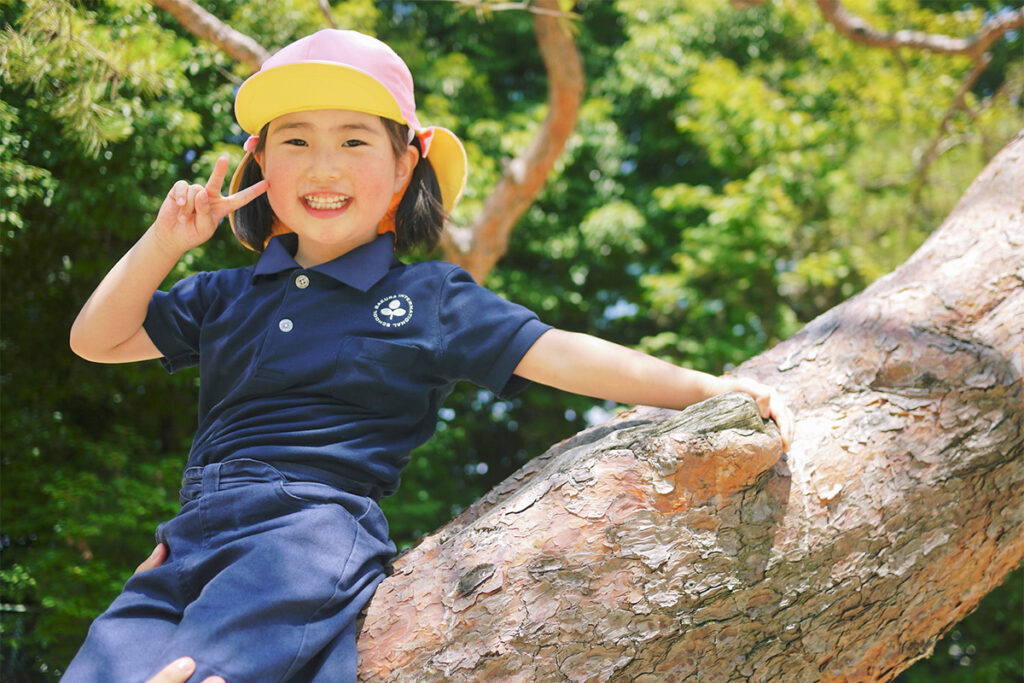
Inquiry-based Learning
Young children are natural inquirers. Asking questions is one of the ways in which children make sense of the world and their place in it. The Kindergarten Program uses this natural inquisitiveness as a basis for learning throughout the day.
This approach to learning is embedded in our Units of Inquiry in which children explore a big idea or meaningful concept through guided inquiry over a period 7–12 weeks.
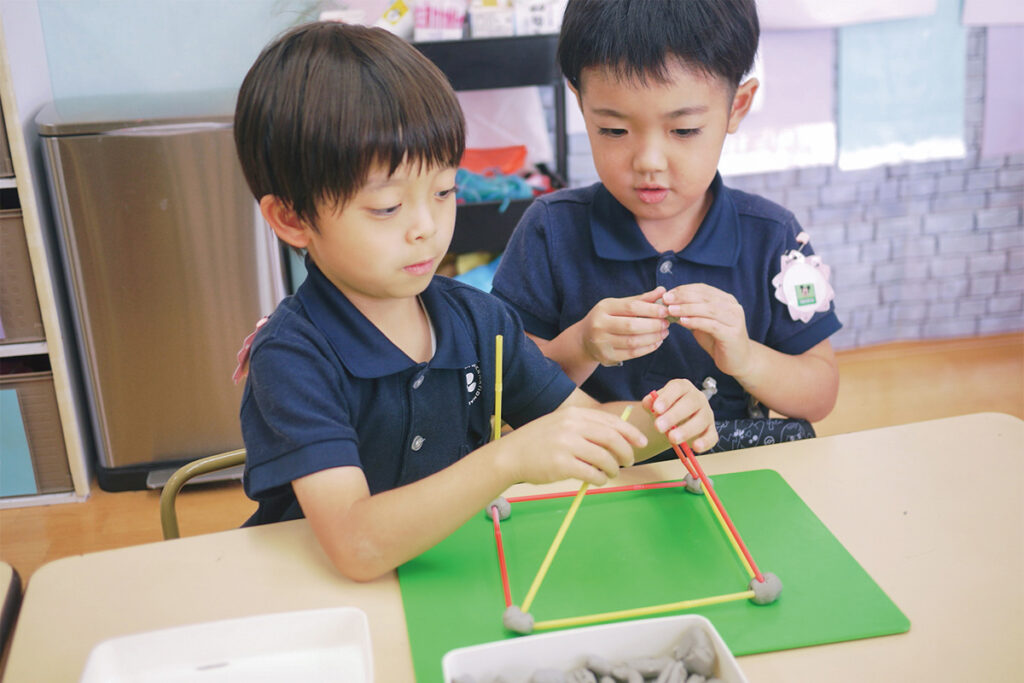
Nurturing Global Citizenship
In the Kindergarten Program, we are committed to actively fostering international-mindedness in our students. We aim to inspire our students to act as responsible and open-minded participants in a global society. Intercultural understanding is nurtured by the diverse cultural backgrounds of our learning community—both students and teachers—as they interact, share their different perspectives, and learn from each other.
The development of global citizenship is also embedded into our Units of Inquiry and nurtured through a variety of cultural events held throughout the year and directly through our bilingual curriculum. Additionally, students have the opportunity to learn French and Chinese in our after-school program.
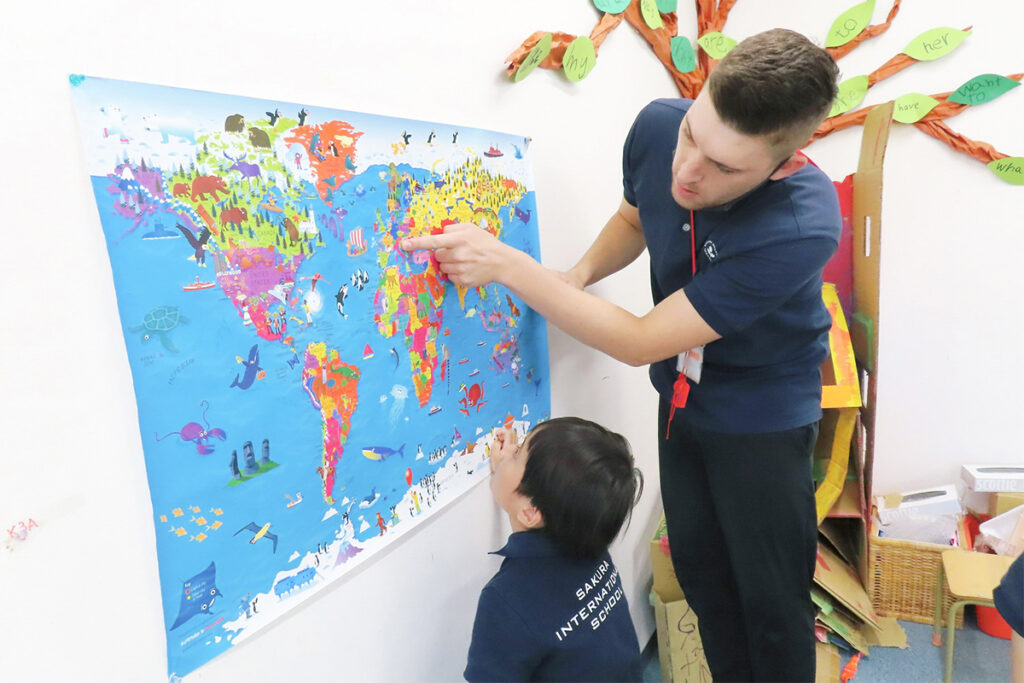
Supporting Learner Agency
Children become “agents” of their own learning when they are given a voice in the classroom, choice in how they learn, and ownership of their learning. In the Kindergarten Program, we value students as active participants in the learning community.
We view students as co-collaborators who help co-construct learning experiences and the learning environment with their peers and teachers.
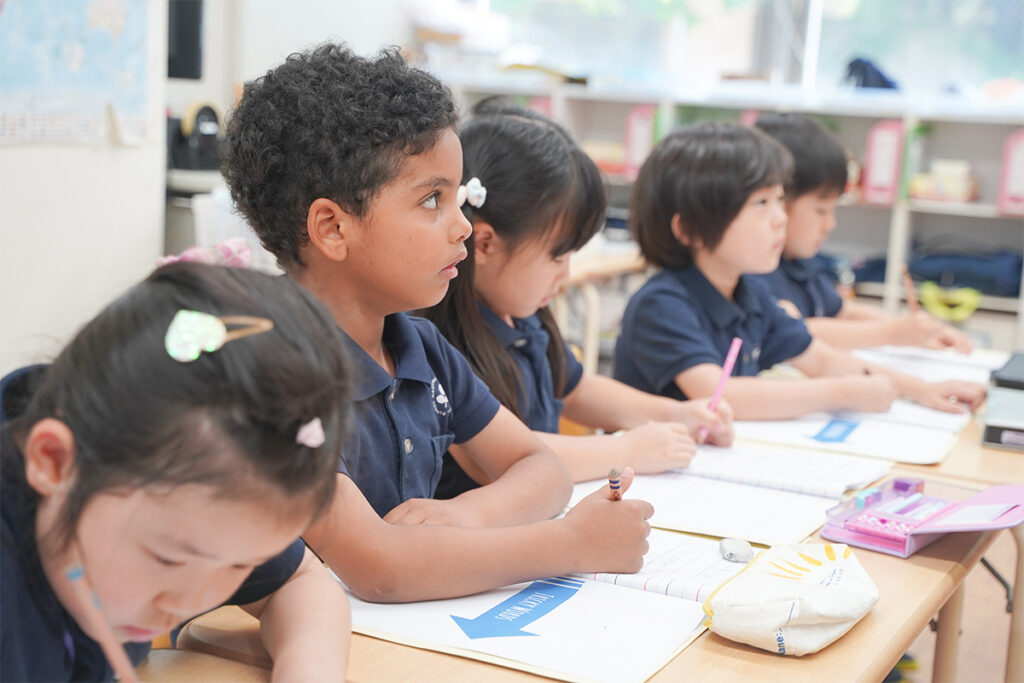
Bilingual Learning
Bilingualism is central to the Kindergarten Program. We view language learning as a means of expressing and affirming cultural identity and developing international-mindedness.
Students in the Kindergarten Program spend part of their time at school learning in English and part of their time learning in Japanese. Students learn in a fully immersive environment, fostering proficiency in both languages. Learning experiences and content are closely aligned in both English and Japanese (e.g., Units of Inquiry and mathematics) to maximize learning and achievement in both languages.
